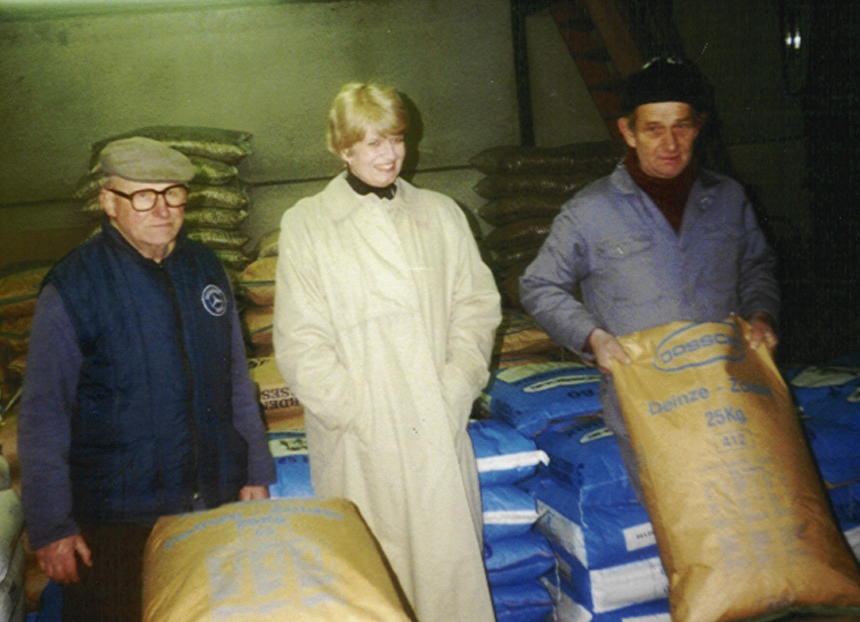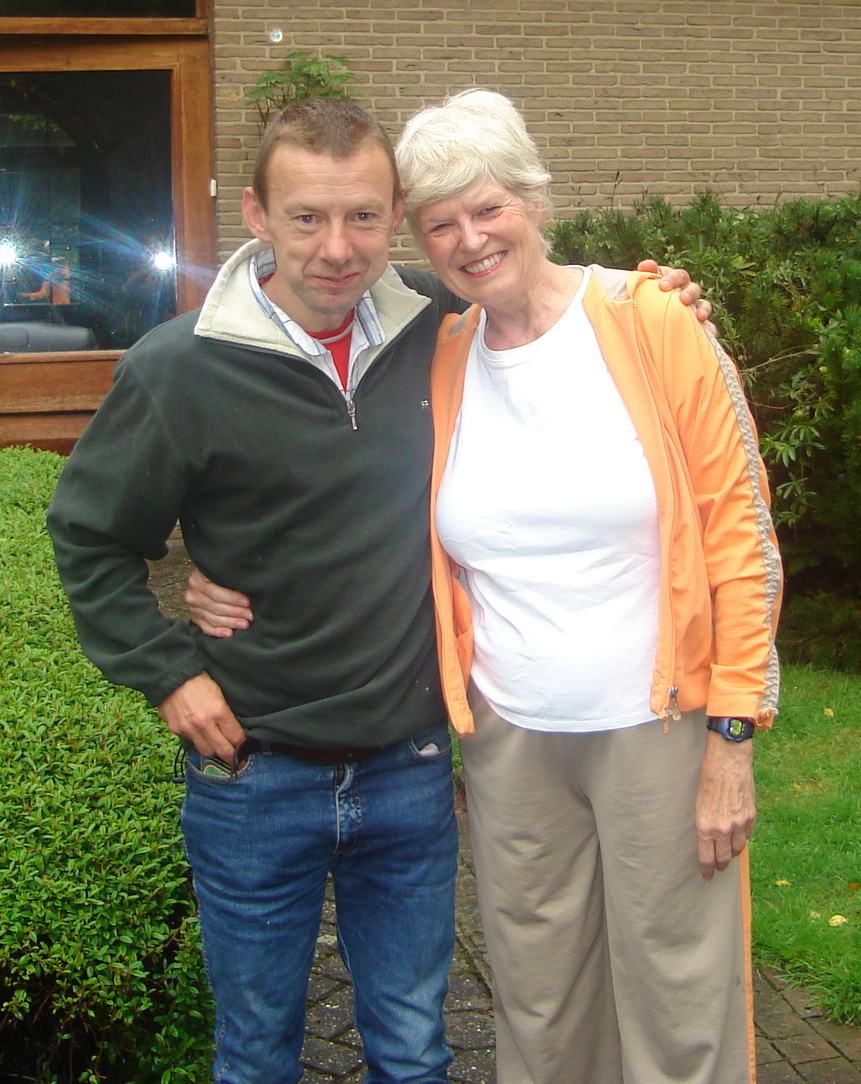The article cited in that text, though published in 1974 by a Cincinnati neurologist, was a report based on his 1936 visit to Geel. Since that information was obviously dated, from time to time I sought out more current information. And, my interest, and search, became more insistent when I came to personally know individuals struggling with the problems of severe and persistent mental illness (SPMI). My friends made me more intimately aware of what text books cannot adequately convey: the social side effects and social rejection that are too often associated with SPMI. During those years, as I saw my friends struggle, I naturally thought about Geel, where those with mental illness were reported to be accepted, visible members of the community.
 Even before my first visit to Geel, I was inspired by what I knew of this community and, in 1993, to
address the social isolation of those with SPMI, I brought together a group of interested individuals who founded a Compeer agency in
Birmingham. At the same time, I
began to make contacts that led to my first visit to Geel, a one day visit
in January
1997. During that visit, I did
not find a relic from the middle ages, but rather a bustling,
prosperous community of 30,000+, the home of a remarkably modern, realistic and comprehensive approach to mental
health care.
Even before my first visit to Geel, I was inspired by what I knew of this community and, in 1993, to
address the social isolation of those with SPMI, I brought together a group of interested individuals who founded a Compeer agency in
Birmingham. At the same time, I
began to make contacts that led to my first visit to Geel, a one day visit
in January
1997. During that visit, I did
not find a relic from the middle ages, but rather a bustling,
prosperous community of 30,000+, the home of a remarkably modern, realistic and comprehensive approach to mental
health care.I have returned to Geel many times since then, most recently in July 2007. Though I welcome the opportunity to revisit familiar city sites, with each visit I also see new developments and progress in the development and implementation of their various programs, and I also meet new people with each visit. As I've come to understand the factors associated with the evolution of Geel's continued success, I have also been motivated to look for communities or programs in our own country that share aspects of community acceptance present in Geel. Marc Godemont, my host for that first and all subsequent visits, has identified what he believes to be the secret of Geel's success:
- Geel acknowledges and accepts the human needs of boarders
- The city responds to those needs, rather than acting on unfounded or exaggerated fears, by providing social outlets and events as well as opportunities to do meaningful work
- Most importantly, the
mentally ill in Geel are members of not just a foster family, but a
foster community as well
 In addition, I have observed
a flexibility in addressing the
individual needs of Geel boarders and clients. Whle they may all
share a diagnosis of mental illness, each person is unique and
each one
has unique needs and challenges. That fact is never overlooked,
particularly within the foster family where they can deal specifically with their own unique boarder.
This flexibility is mostly likely another key factor in Geel's success.
In addition, I have observed
a flexibility in addressing the
individual needs of Geel boarders and clients. Whle they may all
share a diagnosis of mental illness, each person is unique and
each one
has unique needs and challenges. That fact is never overlooked,
particularly within the foster family where they can deal specifically with their own unique boarder.
This flexibility is mostly likely another key factor in Geel's success.These are the factors that I've sought out in programs and communities in the United States. There is nothing quite like Geel, because no community can boast a 700 year old history. But there are indeed programs around the world, including the United States, that give us reason to hope that "community recovery" is not an ideal, but rather a realistic goal. It is possible and it exists. Community mental health care can exist in the context of caring communities.
Home | About the Author | Author's Publications | Legend of Dymphna | Geel Time line | Geel Research Project |
Biblio of Geel Publications | United States Programs | Contact author
Web-site last updated Justly 23, 2009